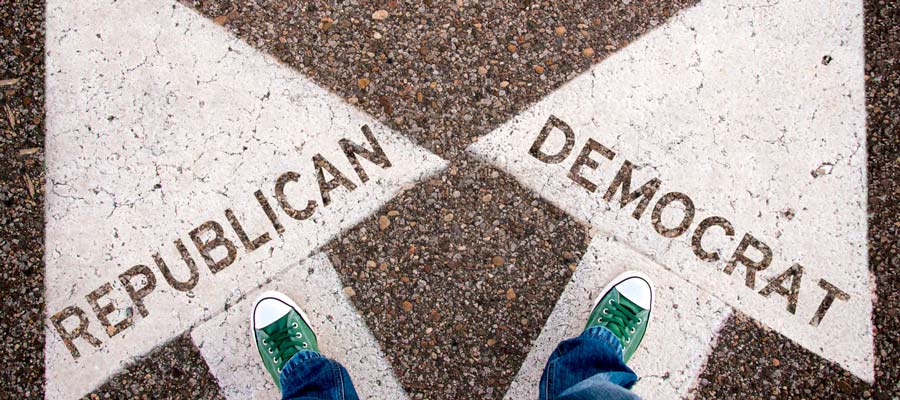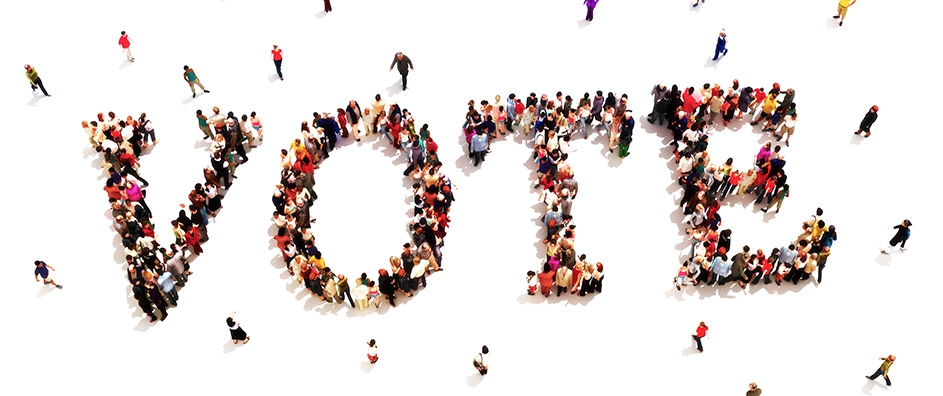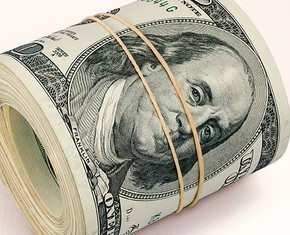The views expressed in our content reflect individual perspectives and do not represent the authoritative views of the Baha'i Faith.
In democratic countries all over the world, people have traditionally struggled to gain and maintain power through partisan politics—but that has gradually started to change.
Perhaps that’s because strict political partisanship has many downsides—it splits us into opposing factions, pits us against one another, generates gridlock and often prevents progress. The Baha’i teachings ask us to think and act differently—to come together, to unify, and to recognize and implement a politics of the divine. Transcending the paralysis of partisan politics, Baha’is believe, allows us to develop and inculcate the highest moral virtues possible, and open the path to true human advancement. This new approach to governance gives us the opportunity to think and act independently, to elect our representatives based solely on merit, and ultimately to have hope for doing away with the divisiveness, corruption and conflict inherent in political partisanship.
This new rejection of partisanship has gained a great deal of ground recently. Increasingly, the trend has become clear—in many democratic countries on the planet, the old partisan political organizations have declined in voter registration totals and in public polling results, while the numbers, influence and strength of independents has risen dramatically.

In the United States, for example, the Gallup Organization first measured the number of voters who considered themselves “independents” in 1952. In that survey, twenty-two percent of Americans initially described themselves as independent, with no partisan political affiliation. In 2016, when Gallup asked the same question, the number who described themselves as independents rose to 42% of all Americans. By contrast, only 29% describe themselves as Democrats, while 26% say they are Republicans. If this trend continues, independent voters in the U.S. will soon outnumber voters from both major political parties.
In European democracies, the trend looks very similar or even more pronounced—strict party affiliation has declined since the 1970s in the older, more established Western European countries, and has stayed very low in the newer democracies of Eastern Europe. More and more, people identify as independents, and the trend has grown even stronger among the young. Across almost all global democracies, more than half of young voters known as millennials now describe themselves as independents.
This worldwide movement toward independence and away from partisanship aligns remarkably well with the Baha’i approach to democracy.
In The World Order of Baha’u’llah, written in 1938 by the Guardian of the Baha’i Faith, Shoghi Effendi outlines the independent, non-partisan divine polity Baha’is strive to establish in the world. This remarkable document, composed during the period between the world’s two worst wars, summarizes the Baha’i teachings about politics and their impact on the world. It warns Baha’is, first, to avoid partisan politics like the plague:
Let them refrain from associating themselves, whether by word or by deed, with the political pursuits of their respective nations, with the policies of their governments and the schemes and programs of parties and factions. In such controversies they should assign no blame, take no side, further no design, and identify themselves with no system prejudicial to the best interests of that world-wide Fellowship which it is their aim to guard and foster. Let them beware lest they allow themselves to become the tools of unscrupulous politicians… – Shoghi Effendi, The World Order of Baha’u’llah, p. 64.
Instead, the Baha’i teachings ask us all to transcend partisan politics, and to turn to the “Divine polity” exemplified by the spiritual principles Baha’u’llah taught:
Let them rise above all particularism and partisanship, above the vain disputes, the petty calculations, the transient passions that agitate the face, and engage the attention, of a changing world… Let them affirm their unyielding determination to stand, firmly and unreservedly, for the way of Baha’u’llah, to avoid the entanglements and bickerings inseparable from the pursuits of the politician, and to become worthy agencies of that Divine Polity which incarnates God’s immutable Purpose for all men. – Ibid, pp. 64-65.
Does moving away from partisanship and toward independence and unity compromise our patriotism? Shoghi Effendi says no:
It should be made unmistakably clear that such an attitude implies neither the slightest indifference to the cause and interests of their own country, nor involves any insubordination on their part to the authority of recognized and established governments. Nor does it constitute a repudiation of their sacred obligation to promote, in the most effective manner, the best interests of their government and people. It indicates the desire cherished by every true and loyal follower of Baha’u’llah to serve, in an unselfish, unostentatious and patriotic fashion, the highest interests of the country to which he belongs, and in a way that would entail no departure from the high standards of integrity and truthfulness associated with the teachings of his Faith. – Ibid., p. 65.
For a very long time, those who live in democratic countries have relied on highly divisive and partisan systems to guide the political life of their nations. That time, the Baha’i teachings say, will soon end, because the time for a new system of global governance has arrived.
Next: Politics, Trust and Racial Healing in Los Angeles
















Comments
Sign in or create an account
Continue with Googleor